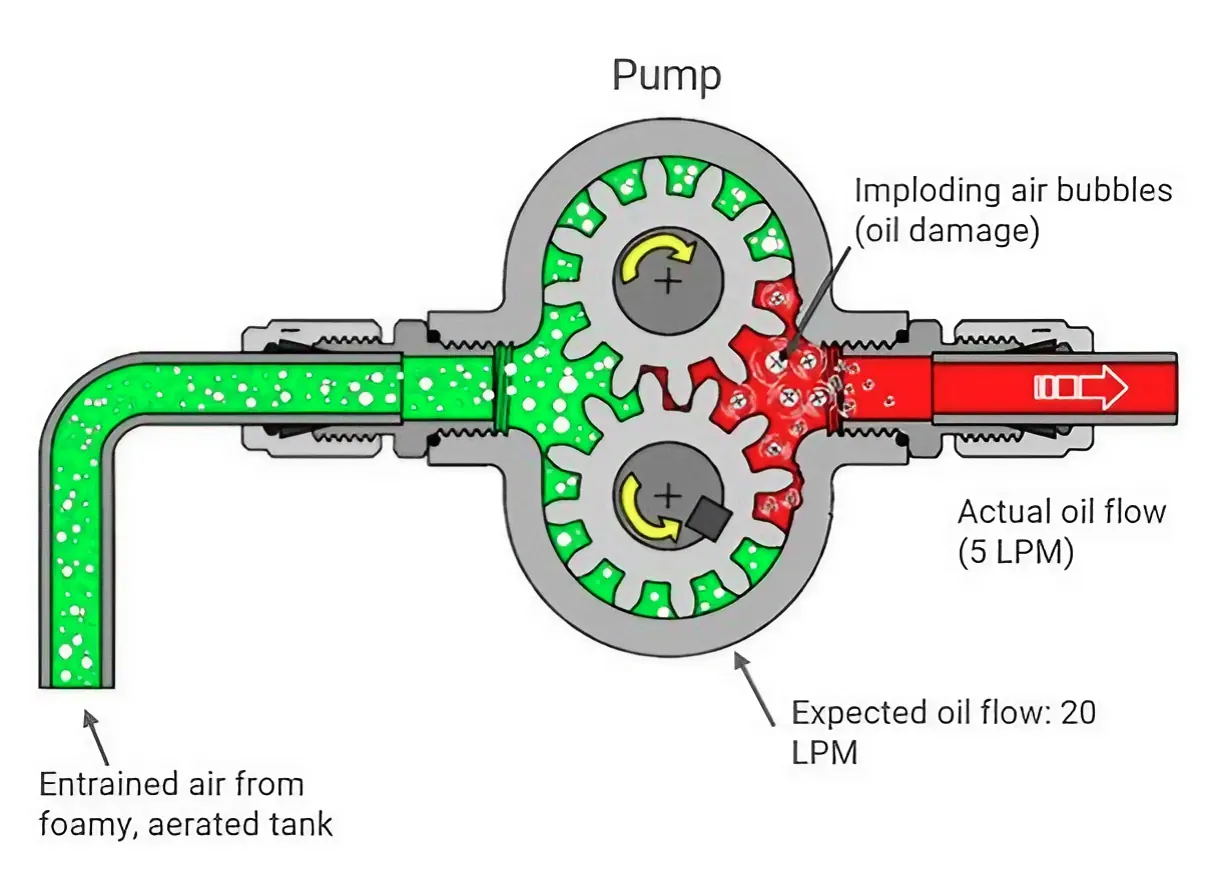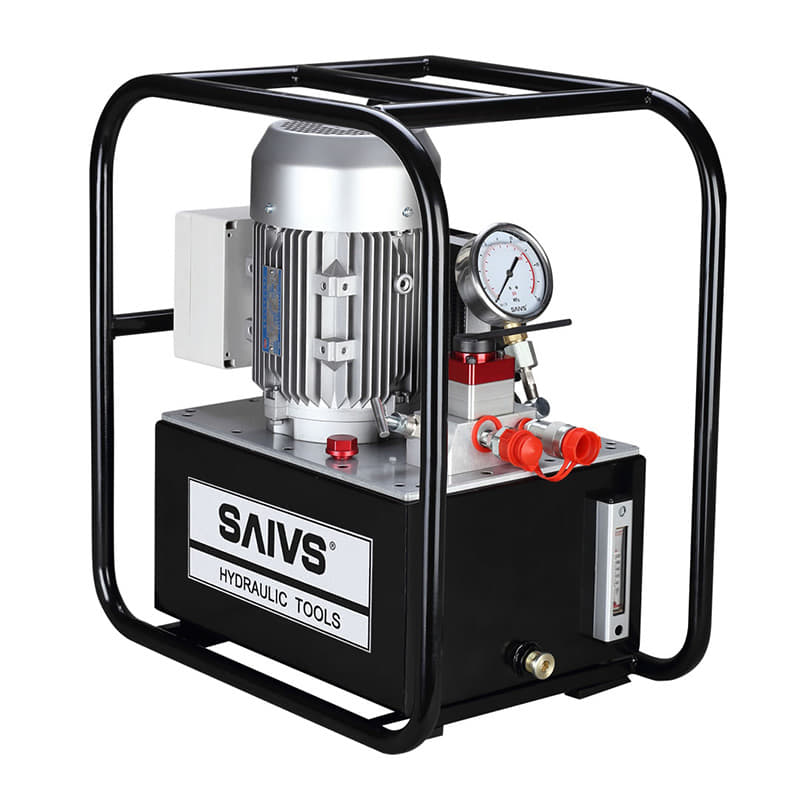Avoiding Dry Start Disasters in Electric Hydraulic Pumps
Why you should never dry start an electric hydraulic pump:
Operating an Electric Hydraulic Pump without the vital lifeblood of hydraulic fluid – a practice known as dry starting – is a recipe for disaster.
Like a car engine running on fumes, the pump's internal components are left to fend for themselves, facing a harsh reality of friction,
heat, and air pockets. This can lead to a cascade of problems, ultimately crippling the pump's functionality and significantly shortening its lifespan.
Overheating:
In the absence of fluid to absorb and dissipate heat, the pump's internal parts can quickly overheat,
leading to premature wear, tear, and potential seizure.
Increased Wear and Tear:
Without the lubricating film of hydraulic fluid, the metal components within the pump can grind against each other, accelerating wear and tear.
Air Cavitation:
The lack of fluid may cause the formation of air bubbles, leading to cavitation.
This can damage the pump's internal components and compromise its overall functionality.

Restarting with Confidence: A 7-Step Checklist for Success
Before reawakening your slumbering electric hydraulic pump after a prolonged shutdown, follow these crucial steps to ensure a smooth and safe restart:
Pre-Startup Checks:
Spin Doctor: Ensure the pump spins freely by disengaging the prime mover, removing the coupling guard, and turning the shaft manually.
Listen for unusual noises or feel for resistance, indicating potential issues like rust or contamination.
If problems arise, further inspection or replacement might be necessary.
Coupling & Seal Safeguard: Inspect the couplings and seals for wear, leaks, or damage.
Replace worn components and tighten loose connections to prevent injuries and fluid loss.
Oil Detective: Sample and analyze the hydraulic oil for contamination and ensure its properties meet the pump's specific requirements.
Lubricate all moving parts according to the manufacturer's instructions.
Clampdown on Leaks: Scrutinize hoses, clamps, and connections for leaks.
Tighten any loose connections replace damaged components to prevent leaks and maintain system pressure.
Filter Finesse: Check and replace dirty or damaged filters (suction, pressure, return)
to ensure optimal oil flow and protect the pump's internal components. Verify all necessary valves are open and functioning correctly.
Prime Time: Prime the pump and vent air from the system according to the manufacturer's instructions.
Check valve positions and secure mounting bolts before proceeding.
Startup & Final Checks:Extend Hydraulic Pump Life
Power Play: Check compensator settings and relief valve bypass pressure specific to your pump.
Reset pressures if bypassing occurs to ensure proper system operation.
Leak Inspection: After powering on, meticulously inspect all lines and components for leaks.
Clean the tank and valves to prevent overheating and maintain system cleanliness.
Mechanical Maestro: Ensure the proper working order of cylinder and motor linkages connected to the pump.
Verify smooth operation and address any binding or malfunctioning.
Extending the Lifespan of Your Spare Electric Hydraulic Pump:
Monthly Spin: Turn the input shaft of the spare pump monthly to prevent internal components from seizing up.
This simple act can significantly extend its lifespan.
Rust Buster: Apply rust inhibitor to the shaft and coupling of the spare pump to keep corrosion at bay.
Climate Control: Store the spare pump in a dry environment at room temperature to prevent moisture and temperature extremes from causing damage.
Oil-Free Haven: Store the spare pump without oil. Add fresh hydraulic fluid just before installation to ensure optimal Performance and cleanliness.
By following these comprehensive steps and adopting a proactive maintenance approach,
you can ensure your electric hydraulic pumps operate smoothly and reliably for years to come.
Remember, a little prevention goes a long way in preventing a costly and downtime-inducing catastrophe.
Treat your pumps with the respect they deserve, and they'll reward you with years of dependable service.
If you have any questions about hydraulic pumps, please contact our experienced technicians: https://www.saivstool.com/contact/
Why Choose SAIVS™ as Your Supplier?
With 20 years of industry experience, SAIVS is a leading Chinese manufacturer of high-quality tools, offering competitive pricing and excellent customer service.We pride ourselves on exceptional quality control, extensive experience, and comprehensive after-sales service.
